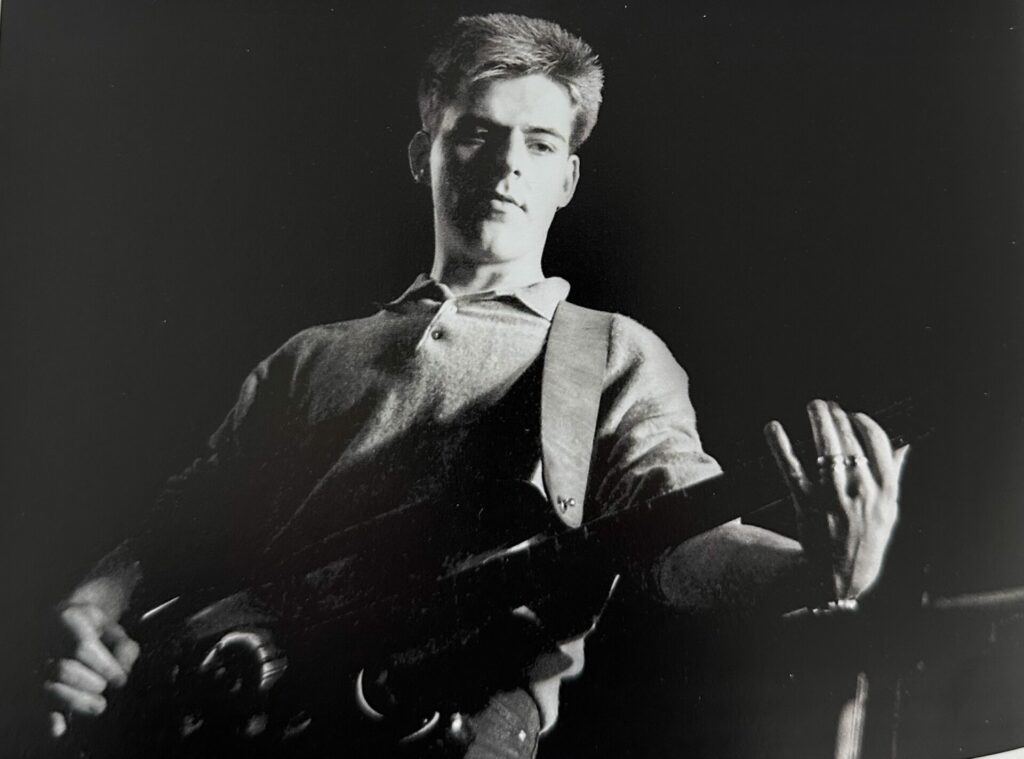Take a look back at some of Andy Rourke’s best ever basslines
Following the sad news of Andy Rourke's death, we look back at some of the music icon's best basslines

It’s testament to Andy Rourke’s incredible talent that the tributes have barely stopped since the sad news of his passing was confirmed by Johnny Marr, his bandmate in The Smiths and one of his closest friends since the age of 11.
His distinctive playing style has been discussed heavily; Suede’s Mat Osman described him as a “rare bassist whose sound you could recognise straight away,” while Johnny Marr called Rourke “a kind and beautiful soul” and “a supremely gifted musician”.
Gaining widespread recognition for his ambitious, melodic approach, the Smiths bassist was instrumental in shaping the Manchester band’s iconic sound. The distinctive warmth and density of his basslines perfectly complemented the clean, intricate, jangling melodies of iconic guitarist Marr, and the pair’s tight bond was encapsulated last year when they collaborated on Blitz Vega track ‘Strong Forever’ and reunited during a show at Madison Square Gardens.
To celebrate the legacy of this singular musician, here’s a look back at six of Andy Rourke’s best basslines for The Smiths.
‘Barbarism Begins At Home’
Rourke was heavily inspired by US funk music (before The Smiths, he even played in a short-lived funk band called Freak Party), and the penultimate track of ‘Meat Is Murder’ brilliantly harnesses the influence of artists like Stanley Clarke and Funkadelic’s Bootsy Collins. The upbeat groove of ‘Barbarism Begins At Home’, a scathing critique of corporal punishment, hinges on Rourke’s intensely funky bass slaps, described by Rourke in a Bass Guitar magazine interview as “slap bass with a pick”. As it suited “the funky stuff”, the song was recorded using Rourke’s Yamaha BB2000, an instrument he used extensively on the 1985 ‘Meat Is Murder’ tour. The song’s thick slaps and rapid fingerwork showcased Rourke’s unique talents expertly.
‘Cemetery Gates’
Despite its lyrical content, which centres on a stroll around a graveyard, there’s an uplifting quality to ‘Cemetery Gates’, the fifth track on The Smiths’ 1986 album ‘The Queen Is Dead’. That’s partly down to Rourke’s bright, crisp bassline, his smooth runs down the fretboard providing calm and balance throughout Morrissey’s musings on life and literature. As with various other tracks, his bassline is built around octaves, following his root note immediately with its higher octave to add colour and variety to the heavily syncopated riff. The result is simple, but supremely effective.
‘How Soon Is Now?’
For many of The Smiths’ tracks, Johnny Marr’s unusual tuning choices impacted Rourke — according to a rare 2011 interview, he regularly “had to tune up to this stupid F#,” an alteration that admittedly often brightened his sound. But on ‘How Soon Is Now?’, a sprawling 6-minute wall of quivering, distorted guitar and reverberant 80s drums, it’s widely understood that Rourke remained in standard tuning. In the gaps between Marr’s iconic guitar slides, his bass riff booms powerfully, adding to the thick layers of sound in a track that was included in Rolling Stone’s list of the 500 greatest songs of all time.
‘Pretty Girls Make Graves’
A strident, bouncing melody that skips fluidly across the strings with a heavy use of octave notes, the verse riff on ‘Pretty Girls Make Graves’ is one of Rourke’s most rhythmically-driven. Introduced with the snap of a snare and tied tightly to Mike Joyce’s drums throughout, the verses showcase the bassist’s rhythmic skills; then, Rourke’s playing becomes more expansive in the break/chorus sections, his melodies adding tension while Morrissey howls above. On this track, from the group’s eponymous debut, Rourke shows just how versatile he is.
‘This Night Has Opened My Eyes’
A typically melancholic Smiths tune first heard on 1984 compilation album ‘Hatful of Hollow’, ‘This Night Has Opened My Eyes’ sees Morrissey explore the story of a woman forced to abort her baby, wailing “Oh, save your life / Because you’ve only got one”. Providing structure for this storytelling, Rourke’s bass softly hums away, helping create a melodic, simplistic, perfectly balanced rhythm section. His playing is solid and warm, with a strong walking bassline that mingles delightfully with Marr’s jazzy chord stabs.
‘Heaven Knows I’m Miserable Now’
On ‘Heaven Knows I’m Miserable Now’, the complexity of the intricately-crafted guitar arrangement demanded a level of simplicity from Rourke. And while he achieves it, he’s certainly not overshadowed by his childhood friend; he follows Marr’s meanderings with a smooth, comfortable, but wide-ranging set of riffs, full of swift descending runs and quick fingerwork. Recorded using his beloved 1964 Fender Precision, the track undoubtedly features Andy Rourke at his very best. While the bassist may not enjoy quite the same status as songwriting duo Marr & Morrissey, he was a special musician, a man beloved by fans all over the world, who will be deeply missed by everyone he touched.
